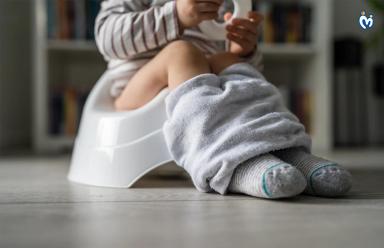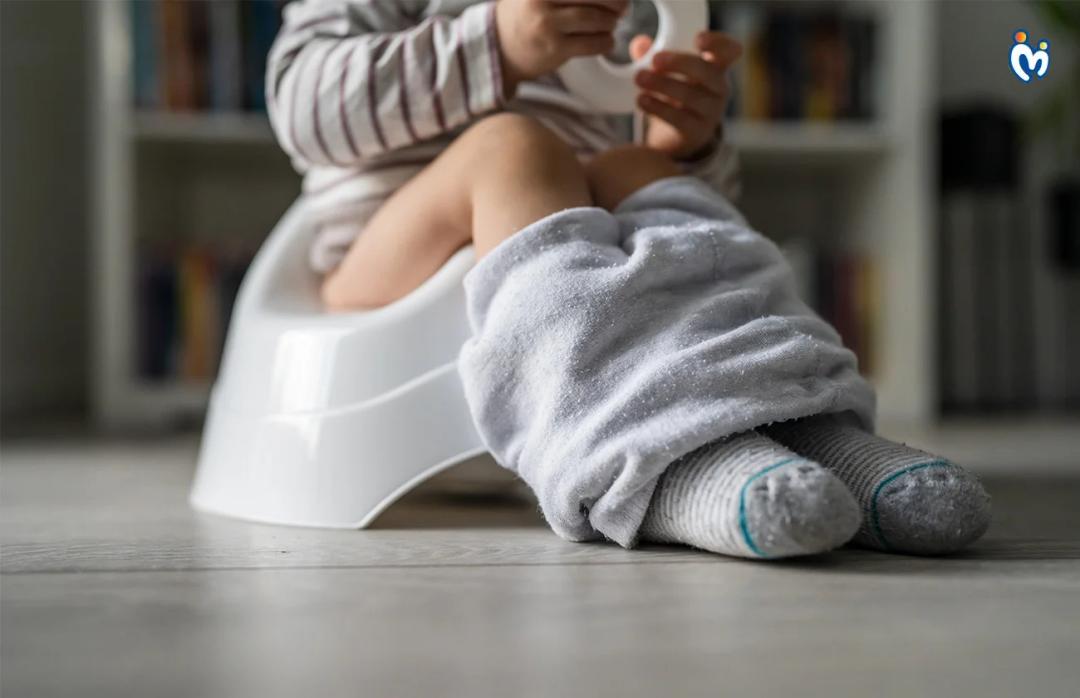Mental health, as we are increasingly discovering with every passing day, is an important topic in every age bracket. As people get older, they may be able to verbally express issues about their mental health. And as research has shown, there can be many issues in childhood days that may cause mental health problems as the individual grows up. Thus, even though it may not seem like your little one is old enough to understand or grasp mental health, it is of utmost importance that you, as a parent, go the extra mile when it comes to ensuring the well-being of your child’s mental health. While the effects or causes of mental health distress in babies may not be very evident, there are some simple ways to ensure that your baby has healthy mental health and growth.
Here are some things you can do effectively to help your baby’s mental health:
Communication is key
You may have heard this is many self-help books or articles on mental health, but at first, it can seem confusing when mentioned in context to a newborn or a baby. However, read along and you will find that it is easy to implement and goes a long way in keeping a baby's mind healthy. Babies may not be able to speak, but they can always communicate. Their means of communication will evolve as the days go by and the initial eye contact and coos may progress to babbling and grabbing things. This is how babies will communicate with you and as a parent, all you have to do is be responsive to them and encourage them to communicate more. Talk to them about the things you are doing or point to objects and name them - there are many ways to encourage your little one’s attempts at communicating.
Offer a safe and happy environment
One cannot stress enough on this one - a safe and happy environment is crucial to your child’s physical and mental well-being. When nurtured in a positive and happy home, children can grow up to be more empathetic, kind, quick learners, and more. While it may not always be possible to live a life with no arguments or disagreements, it is a good idea to keep voices low and step out of the baby’s room if you must have a ‘grown-up’ discussion. When your baby sees both parents happy, they are themselves happier and grow up to be well-rounded individuals. Babies can also sense discord between family members or they may get upset when exposed to negative feelings or arguments, so it’s best to keep them away from the same.
Playing is learning
At this young stage, your baby is too young to do any ‘learning’ by our definitions but they have their own ways to pick up things and even words. Every day your baby is learning something new and exciting. Through playing, your child can get the mental boost necessary for healthy mental growth. As a parent, you can actively get involved in their playtime and come up with innovative yet simple toys or games to encourage them to learn. Exposing them to both indoor and outdoor gives them the opportunity to learn more about their environment. As your baby gets older, they will also explore new things, colours, textures, and more - as a parent, you can encourage these things and help them learn more by speaking aloud about the thing, even though they may not understand this at this stage.
Choose the best caregivers
As a new parent, it may not always be possible for you to tend to your baby. You may be caught up in household chores, office meetings and other appointments. At this stage, your baby is also too young to play by themself or even have screen exposure, which can keep babies occupied. Thus, you need a trusted and reliable caregiver who will look after your baby just the way you do. The old saying of requiring a village to bring up a child may be true, but in today’s world, it is extremely important that you choose the members of this village with utmost caution. Even though many may have the best interest at heart, they may not always know what is best for your baby. So choose caregivers that you trust and teach them your baby’s needs and requirements, so they can offer the same loving environment to your baby like you. Moreover, babies thrive best within a comfortable routine, so your caregiver needs to be able to understand and adhere to the same. When brought up in an enjoyable routine, babies can learn, rest and grow properly.
Take care of yourself
As a new parent, you too are undergoing many changes and learning new things, and adjusting to the new life with the little one. While the baby’s smile can be that ray of sunshine in your life, parenting can sometimes be difficult as new parents are often exhausted or confused. In times like these, it’s important to remember that your baby’s mental health will only benefit from the best version of yourself. A happy parent means taking better care of the baby with all the essentials and fun playtime. To be at your best self, and thus be there for your baby, you need to take care of yourself, in every possible way. Take ample rest, ask for help when needed, go out and rejuvenate, eat healthy and get some exercise - there are many ways to be in the right physical and mental state to take care of a child. You can also choose activities that de-stress you like a warm bath, herbal tea, a walk in the park, or even a good book. It’s important to talk to your partner or reach out to other family members when you feel overwhelmed or exhausted - it’s never bad to ask for help. In fact, a break at times can often help you relax and re-energize and thus come back more energetic and alert to your baby’s needs.
Keeping these few things in mind, can definitely help you and your baby and ensure healthy growth for your little one. And always remember, that nothing is better for a child than a healthy and happy family and environment. All the best!
FAQ's
Q. Why is mental health important for babies?
Ans.Mental health in babies lays the foundation for emotional, social, and cognitive growth. Even though they can’t express feelings in words, their early experiences shape their sense of safety, trust, and happiness. Positive early care helps them grow into confident, empathetic, and emotionally healthy individuals later in life.
Q. How can I communicate with my baby for better mental health?
Ans.Communication with babies starts from day one. Maintain eye contact, respond to their coos, talk about daily activities, and name objects around them. This responsiveness helps them feel secure and encourages brain development. Even without words, babies understand love and attention through your tone, expressions, and gentle physical touch.
Q. What role does a safe and happy environment play?
Ans.A safe, calm, and happy home promotes emotional stability in babies. Minimizing arguments, keeping noise levels low, and offering affection helps them feel secure. Positive surroundings allow babies to explore, learn, and grow confidently while avoiding the stress or anxiety caused by witnessing tension or negativity at home.
Q. Can playing really improve my baby’s mental health?
Ans.Yes, play is essential for mental growth. Through toys, games, colors, and textures, babies learn problem-solving, coordination, and social skills. Both indoor and outdoor play stimulates curiosity and builds resilience. Active participation from parents during play strengthens bonding and boosts a baby’s confidence to explore their surroundings.
Q. What are simple activities to boost a baby’s mental growth?
Ans.Talk to your baby often, sing songs, show them colorful objects, and allow safe exploration. Read picture books, play peek-a-boo, and offer sensory toys. Encourage their curiosity with gentle guidance. These activities not only entertain but also strengthen memory, emotional security, and early learning skills in a fun way.
Q. How do I choose the right caregiver for my baby?
Ans.Choose caregivers who are trustworthy, loving, and patient. They should follow your baby’s routine, respect their needs, and create a nurturing environment. Introduce them gradually to your child. Good caregivers actively engage with babies, provide comfort, and avoid stressful situations, ensuring consistent emotional support when you’re away.
Q. Why is a routine important for my baby’s mental health?
Ans.A consistent daily routine provides babies with a sense of stability and security. Knowing what to expect reduces anxiety and helps them adjust better to changes. Routine-based feeding, sleeping, and playtime also promote healthy brain development and make it easier for caregivers to meet the baby’s needs.
Q. Can my stress affect my baby’s mental well-being?
Ans.Yes, babies can sense your emotions, even if they don’t understand words. High stress or irritability can make them anxious. Taking care of your own mental and physical health ensures you can respond calmly and lovingly, creating a positive emotional environment for your baby’s healthy growth and happiness.
Q. How can I take care of myself while caring for my baby?
Ans.Prioritize rest, eat healthy meals, and ask for help when needed. Take short breaks to recharge—read, take a walk, or enjoy a warm bath. Managing your stress levels keeps you emotionally available and patient, which directly benefits your baby’s overall well-being and mental health development.
Q. What are signs my baby is mentally healthy?
Ans.A mentally healthy baby responds to caregivers, shows curiosity, smiles, and engages in age-appropriate play. They may babble, reach for toys, and react to familiar faces. Regular growth, emotional expressions, and a willingness to explore their surroundings are good indicators of positive mental and emotional development.
















